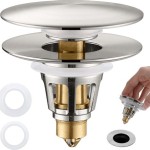Should My Stool Sink or Float?
The appearance and behavior of your stool can provide valuable insights into your overall health and digestive function. One common question that arises is whether stool should sink or float, and the answer can vary depending on several factors.
Generally, healthy stools tend to sink in water. This is because they are typically denser due to their composition of water, fiber, and waste products. However, there are certain conditions or circumstances that can cause stool to float.
Causes of Floating Stool
Excessive Gas: If your stool contains a high amount of gas, it can become less dense and float on the surface of the water. This can occur due to bacterial fermentation in the gut, which produces gas as a byproduct.
Undigested Fats: Consuming large amounts of fat-rich foods can lead to undigested fats in the stool. These fats can trap gas bubbles, causing the stool to float.
Pancreatic Insufficiency: The pancreas produces enzymes that are essential for digesting fats. If the pancreas is not functioning properly, these enzymes may not be produced adequately, leading to undigested fats and floating stool.
Celiac Disease: This autoimmune disorder damages the small intestine, impairing the absorption of nutrients. As a result, stool may become pale, bulky, and float due to undigested fats and other nutrients.
Inflammatory Bowel Disease: Conditions like Crohn's disease and ulcerative colitis can cause inflammation in the digestive tract. This inflammation can affect fat absorption and lead to floating stool.
Other Conditions: In rare cases, certain medications, infections, or medical conditions can also cause floating stool.
When to Be Concerned
While floating stool can be caused by benign conditions, it is important to note that it can also be a symptom of more serious underlying health issues. If you experience persistent floating stool, especially if accompanied by other symptoms such as abdominal pain, diarrhea, or changes in bowel habits, it is recommended to seek medical evaluation.
Your healthcare provider may perform tests such as blood work, stool analysis, or imaging studies to determine the underlying cause and recommend appropriate treatment.
Additional Factors Influencing Stool Characteristics
In addition to the factors mentioned above, certain dietary choices and lifestyle habits can also affect the appearance and behavior of stool:
- Fiber Intake: Consuming an adequate amount of fiber helps add bulk and weight to stool, making it more likely to sink.
- Water Intake: Staying hydrated helps regulate stool consistency. Dehydration can lead to hard, floating stool.
- Exercise: Regular exercise can stimulate intestinal contractions and help move stool through the digestive tract, preventing it from becoming trapped and gas-filled.
It is important to note that stool characteristics can vary from person to person, even among healthy individuals. If you have concerns about the appearance or behavior of your stool, it is always advisable to consult with your healthcare provider for a personalized evaluation and guidance.

Know What Your Poo Means It S The Secret To Health Every Body Bliss

Bowel Cancer Symptoms Should Poo Sink Or Float What A Healthy Stool Looks Like Express Co Uk

Why Does Some Poop Float While Others Sink Scienceabc

Should I Be Concerned If Suddenly Noticed My Poop Floats Gutcare

Poop Health 101 In Carol S Care Wellness Coach Energy Healer Nationally Certified Colon Hydrotherapist Light Therapy Colonics Hydrotherapy Cleansing

Researchers Have Looked Into Why Some Poos Float Or Sink In The Toilet Bbc Newsround

Should Your Poop Sink Or Float The Gut Health Doctor

What Your Poo Says About You And Health Mountainview Hospital

Bowel Cancer Symptoms Should Poo Sink Or Float What A Healthy Stool Looks Like Express Co Uk

Scientists Accidentally Discover Why Some Poops Float And Others Sink Iflscience







